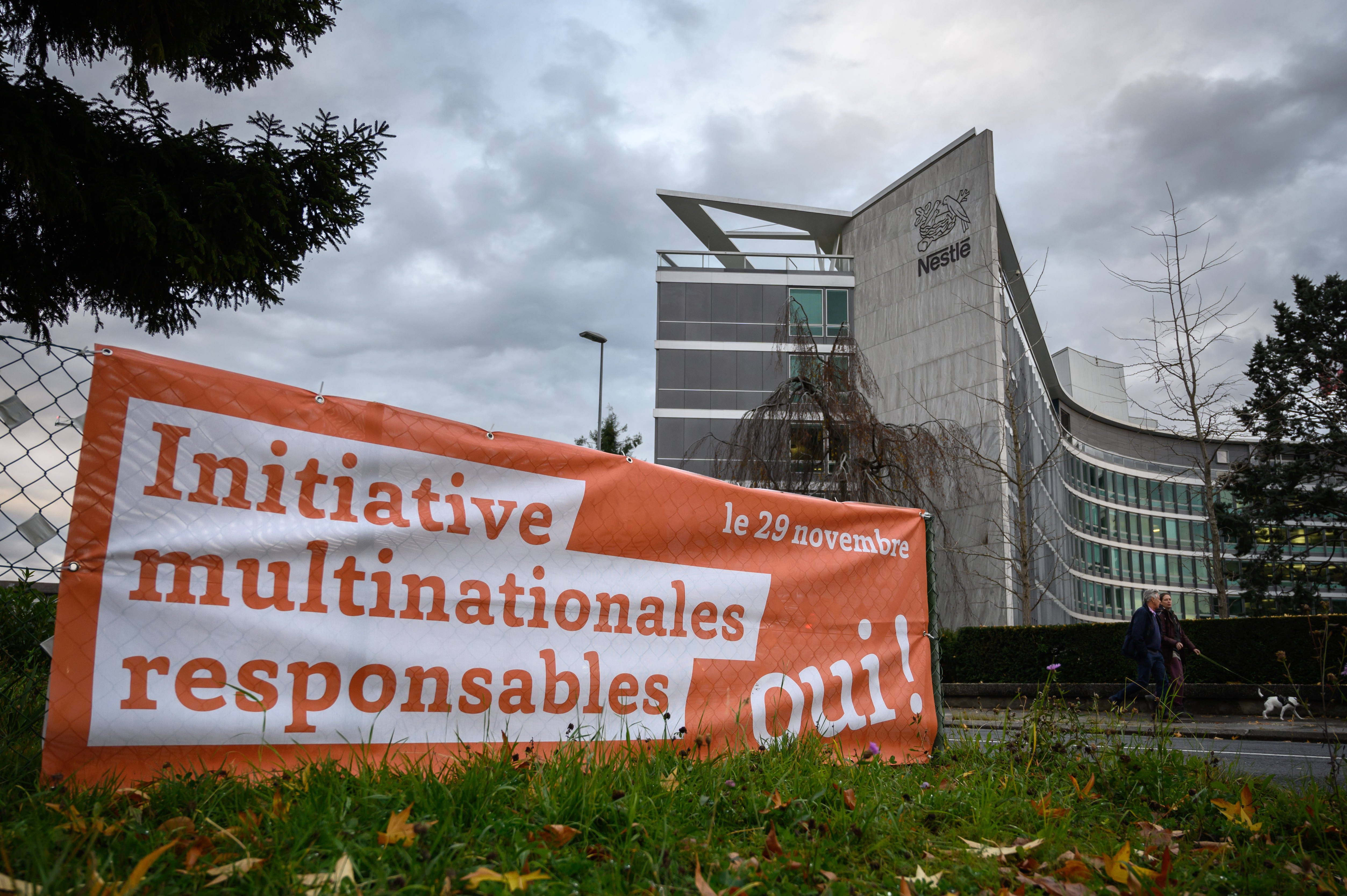
Switzerland will hold a referendum on Sunday in what could lead to the world's strictest corporate responsibility rules. (Photo: AFP)
Swiss multinational companies could become responsible for human rights and environmental abuses abroad, if what would be the world's strictest corporate responsibility rules are backed by voters in Sunday's referendum.
Multinationals headquartered in the country would be liable for abusive business practices worldwide under the new proposed legislation – and the vote is expected to be tight. Recent polls indicate a slim majority supports amending the Swiss constitution and forcing companies to ensure they and their suppliers respect strict human rights and environmental protection standards.
The initiative, launched by an alliance of 130 non-governmental organizations as part of Switzerland's system of direct democracy, has the backing of trade unions, church groups and actors across the political spectrum.
But it is opposed by the government and parliament, who have warned that while the intention is good, the legislation goes "too far." They have put forward a counter-proposal that would also require companies to report on rights, environmental protections and corruption issues – without being liable for violations.
Supporters have plastered towns and cities with posters showing environmental degradation and human suffering caused by Swiss companies. Multinationals are important drivers of the Swiss economy, with close to 29,000 counted at the end of 2018. According to official statistics, they provide more than a quarter of all jobs in the country.
Backers of the new regulations accept most companies respect rights and environmental protections, but say voluntary measures are not enough to bring the rest in line.
"It is very clearly an illusion to say that companies will do everything by themselves," said Chantal Peyer, a spokeswoman for the Responsible Business initiative. "There are responsible companies who respect human rights, but unscrupulous companies don't change."
Business opposition
On the other side of the argument, the business community claims that constitutional changes could have a detrimental impact on all companies – including those that behave correctly.
The campaign, according to Vincent Simon of the Swiss employers' association EconomieSuisse, has "done a lot of damage overall to our economy."
That is particularly true for the companies mentioned by name, he said: "More generally we have tarnished the reputation of our economy even though we are convinced... that Swiss companies are rather exemplary as a whole."
Businesses and employer organizations are hoping the initiative will fail, which would automatically activate the government's counter-proposal.
They have voiced particular concern over a provision that would make Swiss-based businesses liable for abuses committed by subsidiaries unless they can prove they had done required due diligence. Companies will be presumed "guilty until proven innocent," warned Nestle President Paul Bulcke.
Glencore chief Ivan Glasenberg agreed, warning in a recent interview that "everyone could then come to Switzerland to have their case tried in court," and benefit from a "reversal of the burden of proof." But he insisted that while Glencore "would probably have to hire more lawyers, nothing would change in the way we operate our mines."
Glasenberg rejected the idea that passing the initiative would prompt multinationals to leave Switzerland, but warned that "companies that are active in developing countries will think twice before moving their headquarters to Switzerland."
Jean-Daniel Pasche, the head of the Swiss Watch Industry Federation, warned that even when companies prove in court they acted in good faith, "there could be reputational damage" that is hard to repair.


